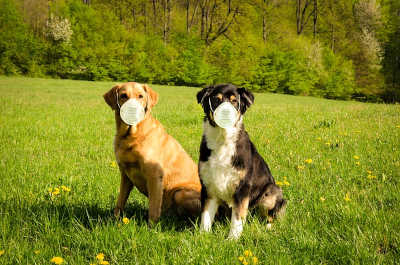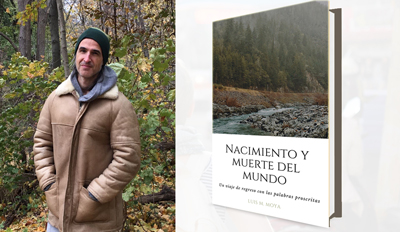

Highlights
"And so far cats seem to be at a higher risk than dogs"— Sarah Giannelli
"A small number of cats and dogs have been infected with Sars-CoV-2 in several countries"— Sarah Giannelli
"People with Covid-19 can spread the virus to some animals during close contact"— Sarah Giannelli
"In April 2020 the Human Society International urged the World Health Organization to require the worldwide closure of all wildlife markets and to stop or limit the wildlife trade"— Sarah Giannelli











Since the beginning of 2020, Covid-19 has started spreading worldwide, almost through all countries.
Many countries are still fighting against the Sars-CoV-2: the virus which causes Covid-19.
To reduce the spread of infection many countries decided to introduce total or partial lockdowns. Only a few and essential businesses were allowed to continue working.
The Covid-19 pandemic is believed to have originated in a wildlife market in Wuhan, a densely populated city in China. The earliest reported cases involved mainly workers from the wildlife market in Wuhan where fish and other animals, including live ones, were sold.
In the first weeks of January 2020, scientists identified strange pneumonia caused by a new coronavirus: the Sars-CoV-2.
Wildlife markets were closed in January 2020 in China due to Covid-19 and the country’s national legislature in February temporarily banned the hunting, trade, and eating of non-aquatic wild animals.
In April 2020 the Human Society International urged the World Health Organization to require the worldwide closure of all wildlife markets and to stop or limit the wildlife trade.
The pandemic is dramatically affecting also the economy and many countries are spiraling into the worst economic crisis since World War Two.
Mental health professionals have revealed that the measures of social distancing adopted by several countries are generating anxiety and psychological effects on many people.
Not only human beings are affected by the pandemic. According to the World Organisation for Animal Welfare (OIE), also animals are victims of the pandemic.
Covid-19 has an impact on the health and welfare of almost all species of animals including laboratory and wildlife animals.
Dr. Neil Reid, Senior Lecturer in Conservation Biology at Queen's University in Belfast, underlined the impact of coronavirus and of lockdowns on animals.
The quarantine restrictions have contributed to reducing human disturbance and increasing wild animals' movements in towns.
During the pandemic social media have posted pictures and videos of mountain goats taking over Welsh towns, wild boars walking along Diagonal Avenue in Barcelona and a large crowd of monkeys brawling over a pot of yogurt in a street in Thailand.
Other species of animals may thrive when human beings are on lockdown. Less herbicide spraying and road verge cutting during the quarantine could allow wildflowers to multiply and weed species to grow. Insects on larval stages, like caterpillars, could find more food around and refuge but also be easy prey for invertebrates and birds. As another result, Dr. Neil Reid stated that the lock-down might also ease the sightings of more bees and butterflies in the summer.
To prevent future pandemics most of the experts warn that the human being needs to drastically change his relationship with animals, in particular with wildlife and farm animals.
In April 2020 the Covid-19 Thematic Platform on Animal Welfare was established to research and control the impact of the pandemic on various species of animals.
The Istituto Zooprofilattico Sperimentale dell’Abruzzo e del Molise ‘Giuseppe Caporale’ (IZSAM) in Italy, invited several global institutions to join a Thematic Platform (EmVetNet) to start a veterinary emergency forum.
The main goal of EmVetNet is to provide to members of OIE (Organizzazione Mondiale della Sanità Animale) advice and technical assistance, to promote the sharing of knowledge and best practices, training, and evaluation on the pandemic emergency and on its impact on animal health.
Last August the EmVetNet started collecting some interesting data about the effects of the pandemic on animal welfare by conducting online surveys and research.
Several online surveys were taken in 118 countries. The collected data have shown that the pandemic is having effects in order of size on pets, wildlife and aquatic animals, laboratory animals, on draft animals, on the zoo and exhibit animals, and lastly on equines.
Animals play a relevant role in our society. They are part of our food chain, often they live with us, and sometimes they are our co-workers.
Covid-19 has had significant effects also on the food production sector. The meat trade was disrupted during the pandemic and people drastically reduced the consumption of meat, preferring more basic ingredients like flour and eggs. Sales of plant-based meats and tofu have exponentially grown since the beginning of the Coronavirus.
Overcrowding on farms has been another effect due to the pandemic. The diets of farm animals have been changed to slow their growth and, in the worst-case, many have been culled.
Companion animals have also suffered the effects of Covid-19. In some countries, people have abandoned their pets frightened by the transmissibility of the virus from-animals-to-humans.
In the field of laboratory animal medicine, many research institutions had to temporarily shut down their facilities.
Diverse zoos started suffering from lower income due to the lockdown, unable to provide food and maintenance costs for their animals. Some zoos were obliged to shut down and others are still struggling for the lack of visitors.
Based on the latest available information, the risk of animals spreading Covid-19 to people is considered to be quite low. In most circumstances, it was stated that people can infect animals.
Sars-CoV-2 spreads from person to person mainly via respiratory droplets, from coughing, sneezing, and talking.
However, further studies are still needed to precisely understand if and how different animals could be affected by Covid-19.
We know that cats, dogs, and some other mammals can be infected with Sars-CoV-2, but we don’t know yet if all of the species of animals can get infected.
There have been reports of animals being infected with the virus worldwide. A small number of cats and dogs have been infected with Sars-CoV-2 in several countries.
In April 2020, the American Centers for Disease Control and Prevention reported the first cases of Sars-CoV-2 on two cats living in separate homes in New York. The owner of one of the two cats was previously tested positive for the virus.
In June 2020 a dog was tested positive after his owner was found sick with Covid-19. Veterinarians believe those companion animals are not particularly susceptible to Sars-CoV-2, and so far cats seem to be at a higher risk than dogs.
One ferret was reported positive for Sars-CoV-2 in Slovenia last year. Most of these pets became sick after they had contact with infected people.
As reported by the US Department of Agriculture (USDA), the first case of an animal positive for Covid-19 was a wild mink tested positive around an infected mink farm in Utah.
Later other cases of animals tested positive for Sars-CoV-2 were reported in the USA as a tiger at a New York Zoo, a puma in South Africa, a tiger in a Tennessee Zoo, a snow leopard at a Kentucky Zoo, and three gorillas at the San Diego Zoo Safari Park in California.
Several animals in zoos have tested positive for Sars-CoV-2, including large cats and great apes.
It is suspected that these animals became sick after being exposed to zoo employees with Covid-19, despite taking any precautions.
Sars-CoV-2 has been reported in mink fur on farms also in the Netherlands, Denmark, France, Spain, Sweden, Lithuania, Greece, Poland, and Italy.
Last November, Denmark announced it would cull 15 million mink on fur farms after a mutated version of the virus was found in some animals. In the Netherlands, authorities also preventatively killed millions of pups mink on fur farms affected by Covid-19.
The Netherlands is the fourth-largest producer of mink fur after Denmark, Poland, and China.
Recent experimental studies show that also ferrets, fruit bats, hamsters, and tree shrews can get infected with the virus. They can spread the infection to other animals of the same species in laboratory settings.
According to the Center of Disease Control and Prevention in the USA, collected data from recent studies suggest that dogs can get infected but might not spread the virus to other dogs. Cats and ferrets instead can spread the virus to other animals of the same species.
Other studies on non-human primates underline that rhesus macaques, cynomolgus macaques, grivets, and common marmosets can become infected with Sars-CoV-2. Based on recent research in the laboratory instead, mice, pigs, chickens, and ducks do not seem to become infected or spread the infection.
People with Covid-19 can spread the virus to some animals during close contact. It is important for people with suspected or confirmed COVID-19 to avoid contact with pets and other animals to protect them from the infection.
It is expected that this Covid pandemic will not be the last.
More global pandemics may be to come in the future. Any pandemic has negative effects on people, animals and our planet. Constant research on the subject can definitely help us to influence and control its effects.
The studies conducted by EmVetNet have shown that working in partnership with other educational institutes can effectively bring values to the research and help to learn and report the unknown effects of a global disaster like Covid-19.
The human population, now 7 billion, is expected to grow to up to 11 billion by the end of this century. According to many scientists, the increase of population density and consequently the increase of his consumption, together with habitat destruction, exploitation of wild species, higher human population densities can be the perfect ingredients for future pandemics.
Valuing our environment and converting to a green global future is definitely the answer to protect the whole ecosystem from the risk of pandemics.
Hopefully, this is one of the lessons the human being has learned from Covid-19.
Image from Andrea Bohl